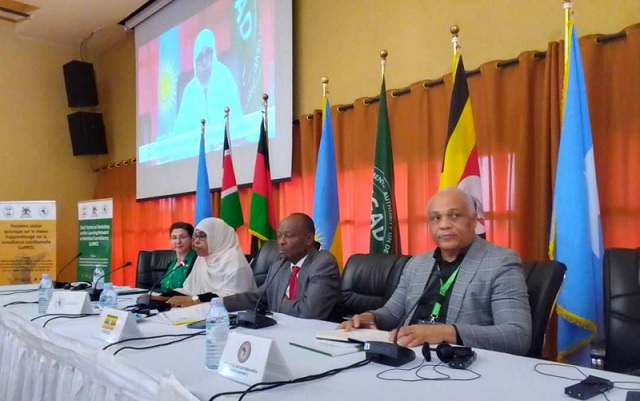
Kampala, Uganda | THE INDEPENDENT | The Intergovernmental Authority on Development (IGAD) has called upon member states to embrace the digitalization of nutritional data for enhanced surveillance, monitoring, and utilization by various institutions and policymakers within the communities.
Speaking at the third technical workshop of the Learning Network on Nutrition (LENNS) held at Speke Resort Munyonyo, Dr. Fatuma Adan, the Head of IGAD Mission, highlighted the concern regarding the lack of relevant infrastructure, such as electricity, in member states.
This infrastructure gap hinders the establishment of digital systems to support efficient data collection and analysis. Dr. Fatuma emphasized the responsibility of governments, partners, and institutions to support communities in ensuring the availability of appropriate infrastructure, particularly access to electricity.
Collaborating with external institutions, they can advocate for the necessary infrastructure to facilitate the digitalization process.
The workshop served as a platform for member states to exchange information and learn from countries that have excelled in nutrition surveillance and the timely generation of quality data. The shared data aims to assist nutritionists and governments in making informed decisions, especially in areas with poor nutrition indicators.
Dr. Henry Mwebesa, the Director of General Health Services at the Ministry of Health, emphasized the importance of utilizing timely data and evidence to drive nutrition programs and address nutrition-related issues in member countries.
He also encouraged member states to prioritize early and routine surveillance to prevent the loss of children under five years of age. Dr. Mwebesa acknowledged the challenge of analyzing collected data and utilizing it effectively at the local level.
According to the Integrated Food Security Phase Classification (IPC) report of 2022, inadequate food consumption, scarcity, and insecurity were identified as major factors contributing to acute malnutrition in the refugee settlements and hosting districts analyzed in Uganda.
The report revealed that approximately 104,440 children were acutely malnourished between February 2022 and January 2023, including around 16,540 children in severe need of treatment. Additionally, approximately 12,850 pregnant or lactating women were identified as malnourished and in need of treatment.
*****
URN
 The Independent Uganda: You get the Truth we Pay the Price
The Independent Uganda: You get the Truth we Pay the Price



